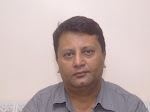What is literature? Is literature mere linguistic product? Or, it is more than that?
These are the questions that need to be addressed urgently and repeatedly by the reading/writing communities world wide. The contemporary literary theory has debunked the earlier humanist conception of literature and art. Formalism, New Criticism, Post-structuralism and Deconstructionism have critiqued the traditional Renaissance and Romantic conceptions of the role of literature, art and culture and successfully undermined the earlier notions about a unique writer and his work: as purposive, goal-oriented mental and aesthetic activities designed to change our old perceptions about our immediate surroundings, reality, status quo and the world, and an implied possibility of radically altering the ossified world working for a minority, on the basis of concrete ideas that can radicalize human consciousness. These current western literary/ critical theories deny any positive role to the aesthetic creator and the created both. Formalist/Post-structuralist critic holds that a work of art is nothing but a linguistic entity; the literariness is literature. That means literature is mere shadow of the linguistic practices of a writing community only. That, it is a thought/language-constituted thing only. There is nothing extra-linguistic about it. It is self-reflexive and self-referential only! In short, it denies the validity of an external, objective world, independent of man!
The literary product is a formal device with its own set of conventions and therefore, self-contained thing only. In one sweep, it deletes the purposive writer as the source of aesthetic meaning and social purpose and denies revolutionary or great art of an era or coming eras, the real possibility of changing the world.
This can be a dangerous argument for the already fragmented post-modern audiences and needs to be challenged.
Literature is a cognitive activity. It is material, highly-logical, well-structured, ideological and political activity that aims to reproduce the real world, at the mental level or thought level. The imaginary representations of literature can be radical or organic; avant-garde or conservative. Literature, as a formal aesthetic category, is expressed via language and refers to an external, objective, independent world, enjoying a purely reciprocal relationship. Language is community; community is language. It is dialogic, not monologic. It reflects the world truthfully and historically. If it is not, then, it is not great literature but pop literature created for the market; it is not designed for enlightening the consciousness of the recipient and laying down foundational basis of slow historical change of the immediate world through praxis.
More on it, later!

No comments:
Post a Comment